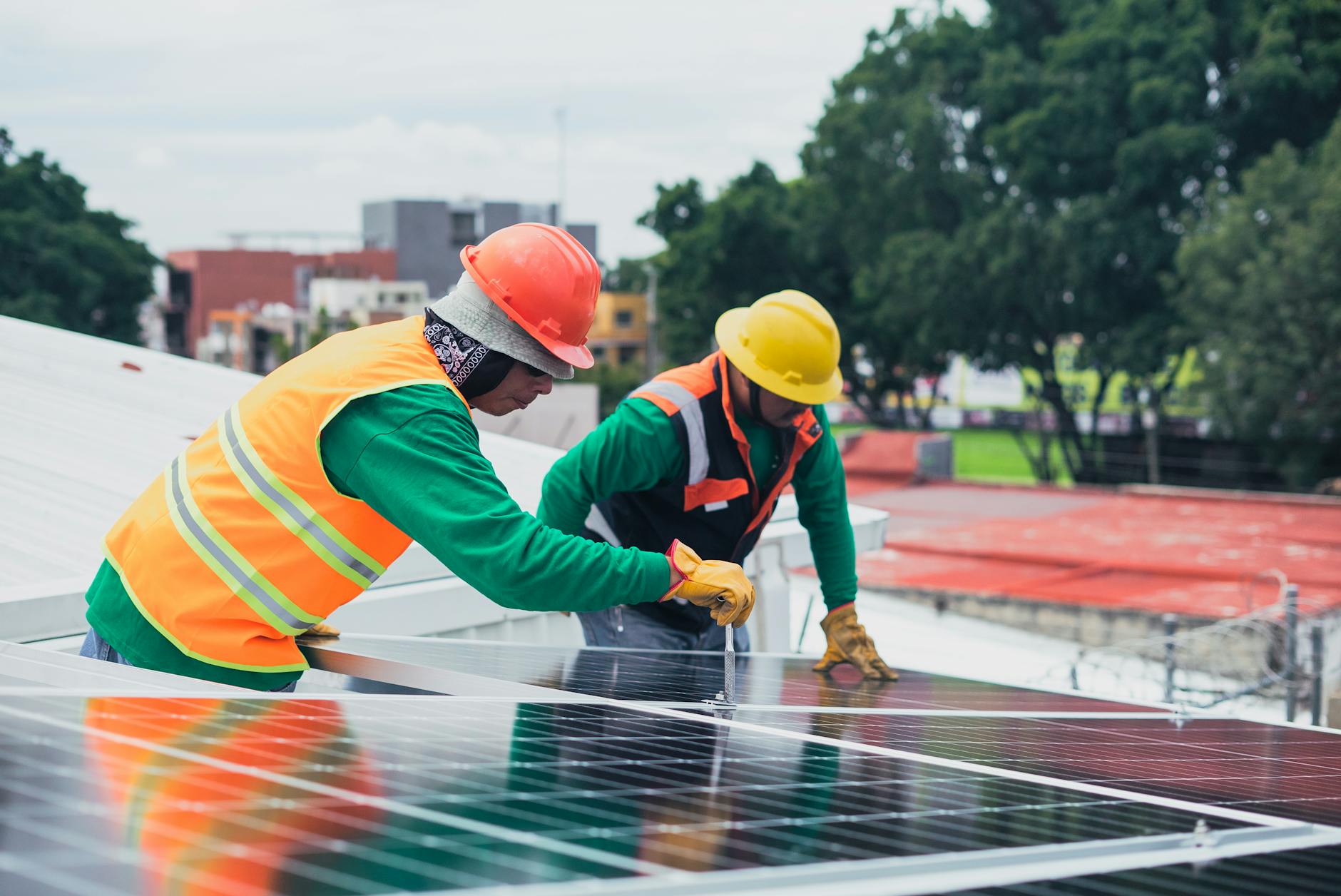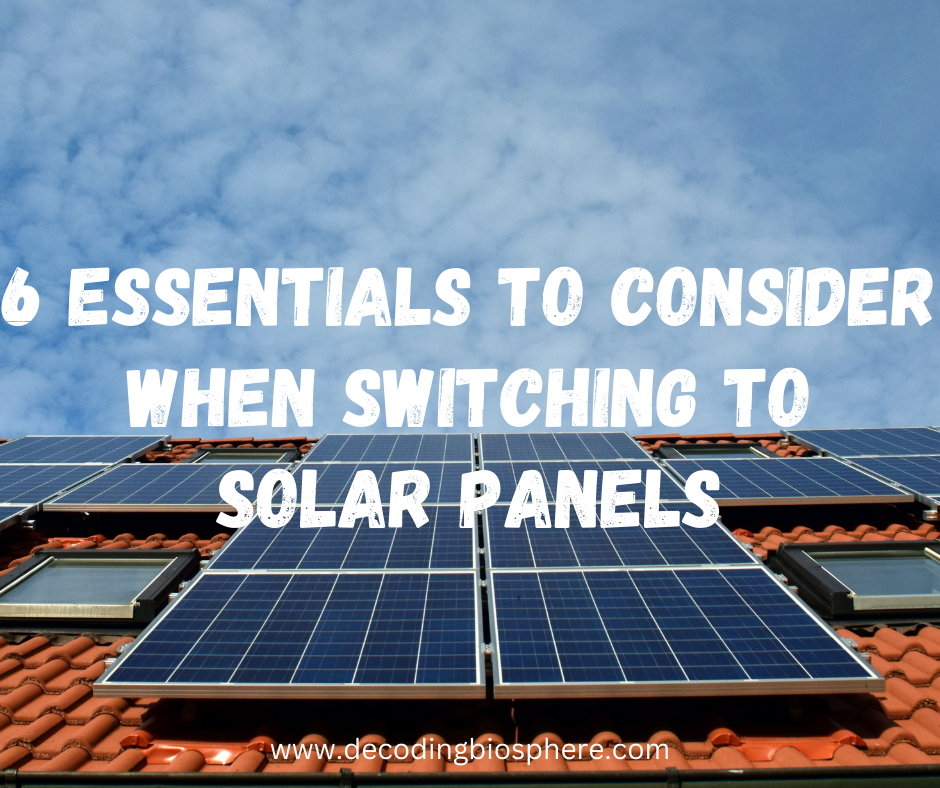As the world embraces sustainability, more and more people are turning to solar panels as a clean and renewable energy source. Whether you’re a homeowner or a business owner, transitioning to solar power involves essential considerations. In this guide, we’ll explore the key factors to keep in mind when making the switch to solar panels.
1. Assess Your Energy Needs
Before diving into solar panel installation, assess your energy requirements. Consider factors such as:
- Current Electricity Consumption: Evaluate your household or business’s energy usage patterns.
- Peak Energy Usage Times: Identify when you use the most electricity during the day.
- Future Growth Plans: Anticipate any expansion or changes in energy needs.
This assessment will help determine the appropriate solar panel system size and capacity to meet your energy demands effectively.
2. Roof Suitability
Your roof plays a crucial role in solar panel installation. Consider the following:
- Orientation: Roofs that receive ample sunlight throughout the day are ideal.
- Angle: Optimal solar panel performance occurs when they face the sun directly.
- Shading: Minimize shading from trees, neighboring buildings, or other obstructions.
- Structural Integrity: Ensure your roof can support the weight of solar panels and withstand environmental factors.

3. Explore Incentives and Financing
Switching to solar panels requires an initial investment, but there are ways to offset costs:
- Government Schemes and Subsidies: Research available incentives and subsidies for solar installations in your region.
- Tax Incentives: Take advantage of tax breaks offered for adopting solar energy.
- Financing Options: Explore solar loans, leasing, or power purchase agreements (PPAs) to make solar more affordable.
4. Choose the Right Solar Panel Supplier
Selecting a reputable supplier is critical for successful solar installation:
- Quality: Look for suppliers with a proven track record of delivering high-quality products.
- Efficiency and Durability: Consider the efficiency and warranty offered by the solar panels.
- Expertise: Choose a supplier experienced in designing and installing solar systems.
5. Battery Storage Solutions
Consider adding battery storage to your solar panel system:
- Energy Storage: Batteries store excess energy generated during the day for use during peak demand or at night.
- Reliability: Battery backup ensures uninterrupted power supply even during grid outages.
6. Maintenance and Upkeep
Regular maintenance ensures optimal performance:
- Cleaning: Keep solar panels free from dust, debris, and bird droppings.
- Inspections: Schedule professional inspections to identify any issues.
- Warranty: Understand the warranty coverage and follow maintenance guidelines.
Conclusion
Switching to solar panels is a significant step toward a sustainable future. By considering these essentials, you’ll make informed decisions and contribute to a cleaner environment. Remember, the sun’s energy is abundant—tap into it wisely!
References:
- https://roofgnome.com/blog/solar/things-to-consider-before-switching-to-solar-panels/
- https://www.electronicsandyou.com/solar-panel-installation-guide-step-by-step-process.html
- https://news.abplive.com/technology/solar-panel-how-to-use-switch-install-buy-purchase-roof-1666788
You May Also Like

